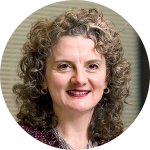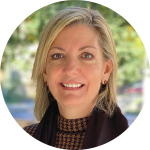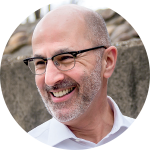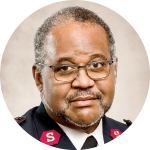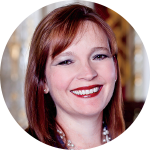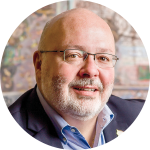Adapt and Survive
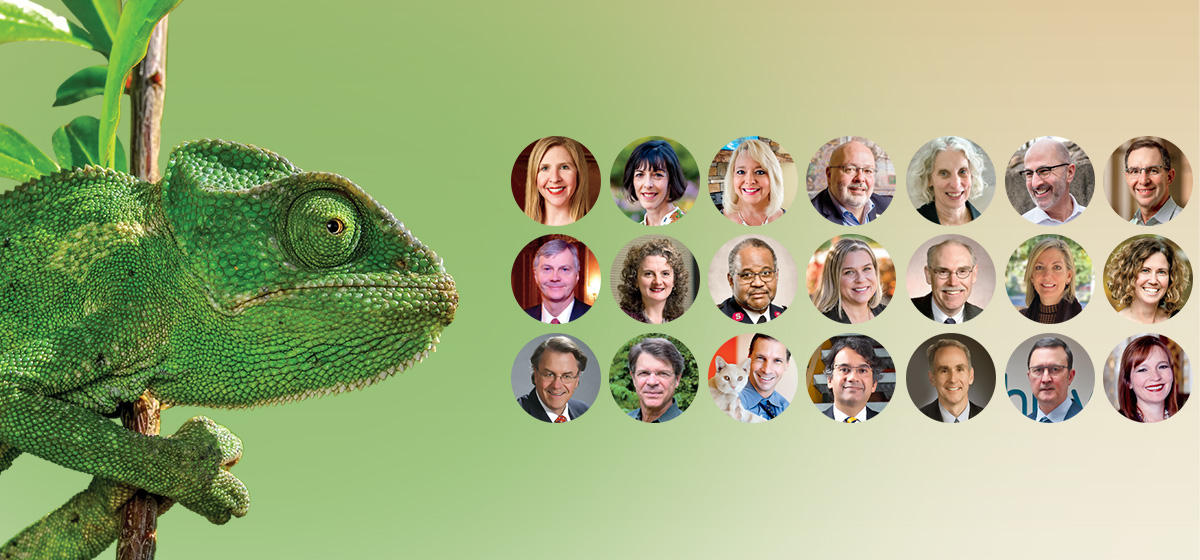
In an effort to understand and also bring attention to our nonprofit sector, we asked a cross section of Pittsburgh’s leading nonprofits to answer the following question: How is your organization adapting to fulfill your mission and maintain financial strength during the pandemic?

Elizabeth Barker, executive director, The Frick Pittsburgh
Until recently, the Frick was an in-person operation. Our exhibitions and educational programs focused on up-close encounters with authentic works of art, industry and nature. All employees worked on site, many in cozy offices and meeting rooms squeezed into old houses. The pandemic turned that business model on its head.
For five months, our site was closed and most employees worked from home, creating online programming and planning for a safe reopening. Days before closing our site, we launched a virtual museum. With feedback from the community, we worked hard to provide what people told us they most needed from the Frick—everything from online lectures and exhibition tours to live-streamed concerts and poetry readings, to activities for families with children.
We entered 2020 anticipating total attendance of 145,000 visitors. We expect to conclude the year with fewer than 25,000 visitors to our site. Yet we have been humbled to record more than 1 million points of engagement online—concentrated in this region, but spanning the world. By monetizing some of those virtual experiences and incorporating them into our programming hereafter, we hope to recover lost revenue while meeting the needs of our 21st century global audience.
Richard Piacentini, president and CEO, Phipps Conservatory and Botanical Gardens
When Phipps was forced to close in March, we adopted a regenerative approach to maintain productivity and keep all of our staff engaged. Rather than concede or compromise against the restraining force of the pandemic, we used the closure as an opportunity to reconcile the conflict and retool our organization. In doing so we were able to reach a higher potential by having staff focus on work that made our organization stronger and more resilient for the future.
This required all staff to work outside of their normal way of doing things. During the closure, staff took on a wide-ranging array of new and longstanding initiatives, including designing future shows and programs, reconciling databases and photo libraries, updating standard operating manuals and completing continuing education credits online. They also called all of our members and created a comprehensive plan for reopening. As a result, we were able to reopen on the first day of the green phase and hit the ground running with a committed and engaged team. Our seasonal flower shows continue as they have since 1893 and are as magnificent as ever, and we have a thriving online education program with classes that engage more students than ever before.
By using a regenerative approach, Phipps persevered through the closure without laying off any employees and emerged further ahead in many structural and operational areas than we were before the closure. This approach continues to serve us as we continue to work through this unprecedented time.
Deb Banks, executive director, American Heart Association, Greater Pittsburgh
COVID-19 undoubtedly has changed the world around us, and the mission of the American Heart Association is needed now more than ever. Approximately 120 million people in the United States have one or more cardiovascular diseases, which places them at higher risk of contracting COVID-19. As part of our global response, we are fast-tracking research to better understand the connection between COVID-19 and cardiovascular health.
To continue our mission of building a world free of heart disease and stroke and improving health equity, we partner with local community organizations, leaders and companies to transform the health of all neighborhoods in the Greater Pittsburgh region.
We are addressing food insecurity and expanding access to nutritious foods. Our virtual Community Conversations series addresses topics ranging from race and health to stroke prevention, providing trusted resources and sparking robust discussions with local experts. To help reduce and control high blood pressure, we’re providing home monitors to high-risk patients.
The American Heart Association has been quick to pivot during these unprecedented times. The ongoing support of our dedicated volunteers, donors and corporate champions allows us to provide essential programs to improve health outcomes for everyone, in all communities.
Thomas D. Saunders, president and CEO, Western Pennsylvania Conservancy
The pandemic has changed all of our work at the Conservancy, in some respect. The biggest impact has been at Fallingwater since we had to close the house for tours. The main attraction, the way we had always shared it, was shuttered and that revenue turned off. By June we were offering outdoor tours—a respite and outdoor experience people seemed to relish during the pandemic. We developed virtual programming, offering deeper levels of learning about the house, history and site. We asked ourselves what would be most helpful and made the site available for food distribution to those in need.
Our watershed staff has kept cleaning up streams, with social distancing. Our science staff has been working in the field to protect species and habitats. Our gardens and urban forestry staff have kept planting—even more by staff, with fewer volunteers. Our land protection staff has kept protecting properties. Our reserves are getting the highest usage ever.
People have been nimble and technology-ready. It’s all been different but it’s been possible. And when a situation is challenging, it pushes us to ask, “What is really important to accomplish?” We’ve had to be inventive to really understand our organization, our finances and our people—staff, board, volunteers, partners. I have been impressed at how everyone associated with WPC has been caring and supportive while times are challenging for so many.
Stephen H. Suroviec, president and CEO, Achieva
Achieva is a disability organization—we advocate for, empower and support people with disabilities and their families throughout their lives. Our vision is a community where all people with disabilities lead lives of personal significance. When COVID-19 hit, we emphasized two equally important goals: to keep the people we serve and our employees healthy and safe, and to make sure that living life didn’t stop for the people with disabilities in our care.
It was paramount to immediately institute procedures so public health guidelines were followed. Because some programs were shuttered at the direction of the state, our innovative staff had to find alternative ways of serving people in our various programs. Some of the changes included teletherapy for children in early intervention and web-based activities for others to keep them active, engaged and connected.
Financially, the community has been great, responding to requests for financial support. Early in the pandemic, we had a need for personal protective equipment, and donors responded via our #ProtectAchieva campaign. Annual fundraising events shifted to virtual events. Finally, Achieva received supplemental payments from our state and federal funders. We are thankful for the government’s support. Although it cannot fully make up for lost revenue, it helps with the unexpected COVID-19 expenses.
Carey A. Harris, CEO, Literacy Pittsburgh
While the pandemic has created many challenges, it has also created exciting opportunities for innovation. Literacy Pittsburgh has embraced its responsibility for ensuring that our adult students remain relevant in an uncertain economy. Employment rates among low-wage workers have fallen the most precipitously of all wage groups and are recovering more slowly.
To help these workers stage their comeback, Literacy Pittsburgh has launched a fast-track preparation class for high school equivalency candidates, helped immigrants prepare for health care careers, and provided math skills classes for trainees in the building trades. One particularly exciting program is our new Workplace Services classes for incumbent workers at companies like UPMC, which creates a new revenue stream. Innovation has also included a sharp focus on the need for digital literacy in the workforce. We have grown the capacity of our teachers, tutors and students to enable not just virtual classrooms, but the digital fluency necessary for nearly every kind of work.
We are working with urgency to advocate for those who are especially vulnerable to today’s economic challenges. An equitable economic recovery means investing in these workers. With support from the community, Literacy Pittsburgh can provide high quality, accelerated learning opportunities that lead to better jobs and a brighter future. n
Heidi Ondek, executive director and superintendent, Western Pa. School for Blind Children
Now more than ever, the Western Pennsylvania School for Blind Children (WPSBC) has proven its resilience and adaptability amidst ever-changing conditions and increasing demands brought on by the pandemic. With the help and support of our entire community, we have remained steadfast and focused on our mission, to nurture the unique abilities of individuals with blindness and visual impairment through educational excellence and a lifetime of learning.
Thanks to the generosity of our donors and the swift action of our families and staff, WPSBC was able to provide families with the resources necessary to sustain remote learning and prepare our campus for the eventual return of our students this fall. Technology, such as iPads, laptops and communication devices, along with therapy equipment, were provided to families. On campus, extensive modifications to our classrooms were made to ensure a healthy and safe learning environment for all.
The unprecedented challenges brought on by COVID-19 have strengthened our school and community as we work together to continue to serve our students. We have witnessed WPSBC’s core values of excellence, compassion, creativity, dignity, collaboration and self-determination in action as we continue to be guided by our vision of being a global leader in education and advocacy for individuals with blindness and visual impairment.
Saleem Ghubril, executive director, The Pittsburgh Promise
The disruptions created by a global pandemic were challenging to everyone, but to many Pittsburgh students and Pittsburgh Promise recipients who have little or no cushion to absorb these blows, the onset of COVID-19 was crushing.
We sprang into action with emergency outreach to identify and serve more than 700 students who severely experienced COVID’s impacts. We raised $1.3 million through which we addressed food insecurity, paid for mental health services and kept students on their post-secondary pathway by giving extra tuition scholarships to fill gaps created by parent and/or student unemployment.
We also announced that eligible students who graduated from high school in 2017 through 2020 will have five years, rather than four years, to utilize their maximum Promise scholarship award. This will ensure that students who choose to, or must, take a gap year due to COVID-19 will not be penalized.
We have continued to do our core work of helping kids pursue their dreams through hard work and post-secondary education remotely—without interruption. Now more than ever, our donors’ support fuels our work to keep scholars on track to incredible outcomes that enrich our communities and strengthen our region.
Timothy Parks, president and CEO, Life’sWork of Western PA
To pivot: a phrase now ubiquitous in the lexicon of many nonprofits struggling to survive in the COVID environment. Since the onset of the pandemic, Life’sWork of Western PA has been pivoting to virtual platforms for both fundraising endeavors (how about a successful virtual golf outing?) as well as the delivery of substantive client programs and services. The “work” of Life’sWork for over 90 years in providing employment support services for individuals with disabilities, has been traditionally through direct, in-person encounters; the pandemic has challenged our professionals to accelerate the process of delivering these services virtually. While the conversion to digital platforms is not without challenges, it has also presented great new opportunities to engage our clients in creative ways, helping them embrace what may become the new normal of the 21st century work environment. And, as we have slowly, carefully returned to some semblance of normal production work in our facilities, Life’sWork has become a “go to” provider organization for assembly/fulfillment projects directly related to the pandemic. Life’sWork clients have been very busy this summer and fall packaging all manner of face masks for Allegheny County, Highmark and others, as well as working alongside UPMC staff to assemble COVID testing kits. While our budget remains very challenged, we have learned that a crisis and effective pivoting can indeed be healthy.
Roxann Booser, executive director, The Maridon Museum
The Maridon Museum’s tool kit for survival: Acceptance. Assessment. Action. Woven together with fine threads of Faith and Hope.
Our initial reaction to the pandemic that necessitated closing our museum was, understandably, denial. However, survival necessitated that we move quickly to acceptance of the reality of what is and take action to explore avenues for survival.
Recognizing that our most valuable asset is people, we connected to assure the continuity of relationships with volunteers, members and staff. Working together, we explored and developed virtual programs as avenues to continue offering educational programs. We explored and secured income resources to supplement revenue that was, and would be, lost from the closure and continued government implemented COVID regulations. All the while, we outfitted the museum with proper sanitation and PPE supplies, and revised our Disaster Policy to include guidelines for a pandemic.
Taking these actions has helped us to maintain so far, and we trust will continue to maintain us through this pandemic.
Major Raphael Jackson, divisional commander, The Salvation Army Western PA Division
There is no quarantine from hunger, from a lost job, from homelessness, or poverty, and this is why The Salvation Army adapted in 2020 by starting its iconic national Red Kettle Campaign—Rescue Christmas—earlier than ever before to ensure it can be a beacon of help and hope for those in need. The Salvation Army’s Annual Red Kettle Campaign supports families and individuals in need across western Pennsylvania through programs that offer utility, rental and food assistance, clothing and other basic needs, and free youth and senior programming. These are all Salvation Army programs that are needed now more than ever.
The Salvation Army Western PA Division provided 256,054 meals and 72,118 food boxes during the first three months of the pandemic, equal to 70 percent of the total meals and 50 percent of the total food boxes provided throughout the 12 full months of last fiscal year. It is estimated that we will serve up to 155 percent more people this year with Christmas assistance: helping to put food on the table, helping to pay their bills, offering a safe place of shelter and warmth, and providing gifts and toys for children.
There are many ways to donate to this year’s Red Kettle Campaign: through traditional kettles at local retailers, contactless Google and Apple pay which are now available at our physical kettles, and online at www.salvationarmywpa.org/RescueChristmas.
Kevin McMahon, president and CEO, The Pittsburgh Cultural Trust
While our intermission has extended longer than we could have predicted, the Pittsburgh Cultural Trust continues to work diligently behind the scenes to position the Cultural District for an incredible second act when it is safe to open our doors once again. Our mission of bringing people Downtown through a vibrant Cultural District remains, despite having been forced to cancel more than 4,000 events since March. We have creatively shifted in-person programs to the virtual stage, including online iterations of the Dollar Bank Three Rivers Arts Festival, Highmark First Night Pittsburgh, Liberty Magic, Trust Arts Education, and more. While nothing can replace superior live arts experiences, we have received wonderful feedback and look forward to continuing these virtual offerings. Given that the Cultural Trust counts on ticket sales for most of our income, we inevitably face a large budget deficit. We continue to count on generous donations through our critical relief fund and are so grateful for the contributions that have already helped us to bridge the gap. Looking towards the future, we know the arts will continue to thrive in our Cultural District and I personally cannot wait for the day we can gather once again.
Dan Rossi, CEO, Humane Animal Rescue
From the very beginning of the pandemic, Humane Animal Rescue of Pittsburgh was deemed an essential service by the governor. We quickly adapted our services to insure we could continue to fulfill our mission of helping animals while assuring the safety of all staff. A “teams” approach was adopted so that if one team was exposed to COVID, our other team would be able to continue to work, preventing a complete shutdown.
Essential services have continued but have been adjusted to limit interaction with the public. This has been done by providing adoptions by appointment, car-side veterinary care, and virtual education opportunities.
We’ve also needed to expand certain services, like our food pantry program. We’ve held several drive-through food distributions and have been providing pet food to a number of other food pantries to distribute to their constituents. Since the pandemic began in March, we have given out nearly 23,000 pounds of pet food (a 325 percent increase from what we typically provide during the same time period).
Like many other organizations, all of Humane Animal Rescue’s 2020 fundraising events had to be canceled due to COVID. We have focused on social media and email appeals to keep Humane Animal Rescue financially stable. Our development team responded to the challenge and executed a very successful broadcasted event that replaced our tradition fall gala. n
Ozzy Samad, president, Brother’s Brother Foundation
From loss of life to financial ruin, with incalculable iterations in-between, the impact of COVID-19 on daily life has been a shared experience, painfully well documented.
The challenges faced by nonprofits lie on dichotomous fronts.Individual donors can scarcely be expected to make charitable donations as they face widespread layoffs, and corporate grants have dried up in times of economic retrenchment and revenue declines. The potential decrease in donations coincides with a near exponential rise in the need for support of vulnerable community members. But then, of course, it has to—there are two sides of the COVID-19 coin.
For BBF, our focus shifted nearly overnight from relief shipments and development work to a near obsession for supporting local partners with what is now ubiquitously known as PPE. These efforts have focused on local community clinics, senior care homes, EMS providers, governmental agencies and community-based organizations such as food banks.
Though challenges abound, BBF fortunately began implementing a plan for long-term sustainability during the pre-COVID era. We are grateful for the generosity of the Pittsburgh community, which has amazingly increased donations, along with the admirable foresight of foundation leadership, as their support helps nonprofits address the pandemic and work to alleviate our own financial challenges.
Thank you everyone, across the board. Without you, our efforts would not be possible.
Melia Tourangeau, president and CEO, Pittsburgh Symphony Orchestra
The difference between our plans for this season and reality are sobering. We were prepared to launch our 125th anniversary Season in September with a very special year-long community celebration. Not only did those plans need to be changed, but it seemingly happened on a moment’s notice last March, from live concerts to substantial digital content. The results of this herculean effort can be seen, free to the public, on the PSO’s website, pittsburghsymphony.org, including our beautifully produced fall digital concert series, “Front Row: The PSO Virtual Experience,” with performances of classical, pops and holiday music.
We’ve built the digital content from the ground up, created safety protocols for our employees, and have created and implemented many plans and financial scenarios that test our stamina, and continue to do so as the pandemic remains. Our musicians volunteered salary reductions and worked with management for an amendment to the current contract. We’ve experienced sacrifice from our staff in workforce changes. At the same time, the continued generous support of the philanthropic community, government leaders, corporate sponsors, and our beloved audience has remained unabated.
Through all this unexpected turmoil, the music has not stopped, our organization has not fractured, and our belief that the power of live music feeds the soul of our community is giving us the will and stamina to not only see this crisis through, but come out stronger. The Pittsburgh Symphony Orchestra, with our community, will continue to be extraordinary together.
August R. Carlino, president and CEO, Rivers of Steel
While 2020 has been challenging, Rivers of Steel has done what we do best—rise to a challenge. An innovative approach to programming and problem solving is part of our organization’s and our region’s DNA. We have always cut a different path and adapted to the changing needs of our communities.
Because of this organizational culture, our dedicated staff quickly adjusted, developing new programs customized for the specific needs created by the pandemic and finding new ways to engage with audiences. The Carrie Carpool Cinema, a drive-in movie experience at the Carrie Blast Furnaces, opened our site to many first-time visitors. Additionally, the LightPlay exhibition allowed returning and brand new audiences to see the National Historic Landmark in a novel way. Industrial Tours were limited to smaller group sizes but have been nearly universally sold out all season.
Controlling expenses and identifying new opportunities for earned revenue was important, as was the generous support we received from local foundations, the Commonwealth of Pennsylvania, other funding partners, and donors. Rivers of Steel also received a federal Paycheck Protection Program loan, which supported our staff, and a CARES grant that offset revenue lost from canceled events and programs.
Anne Kraybill, director and CEO, The Westmoreland Museum of American Art
In unprecedented times as a result of COVID-19, The Westmoreland Museum of American Art is reinventing the very fundamentals of our operations and finding innovative ways to engage our community. What remains unchanged is The Westmoreland’s commitment to the transformative power of great works of art and our mission to bring the finest of American works to our visitors through shared experiences that are welcoming to all. Museums, and art museums in particular, are playing a critical role now to provide a place of respite and inspiration. Because of our strong financial oversight, loyal members and the generosity of longtime funders, The Westmoreland has been able to continue to employ all staff, ensure the security of its world-class building and art collection, and create new virtual public programming that is educational and inspirational.
The only museum dedicated to American art in western Pennsylvania, The Westmoreland is also unique in offering free admission to all visitors. Now reopen to the public after a 20-week closure due to COVID-19, we have implemented new safety policies and procedures with the health of visitors and staff being our top priority, and we continue to present engaging virtual programs.
Christopher Hahn, general director, Pittsburgh Opera
Necessity is the mother of invention. After being forced to cancel our spring Benedum performances, like many performing arts organizations Pittsburgh Opera began producing a steady stream of digital content. This included a series of 50 “videos of the day,” which combined a personal greeting from an artist with an archived performance clip. We consciously chose not to put this content behind a paywall. Its goal was to foster continued engagement with our constituents, not to generate direct “viewing revenue.” It succeeded.
We then pivoted to find creative ways to return to live performances for in-person audiences. Although we had to postpone our fall 2020–spring 2021 operas at large venues such as the Benedum, we persevered and developed a plan to perform for small audiences at our headquarters building in the meantime. This included robust COVID safety protocols to protect our artists, staff, and patrons. To compensate for the reduced seating capacity, we decided to professionally livestream one performance of each opera. We again chose not to put this behind a paywall, as that would have run counter to our mission to making opera accessible for as many people as possible.
We also replaced our fall in-person fundraising gala with an online Holiday Bazaar, featuring unique gift items up for auction until Dec. 9.
Mary Frances Cooper, president and director, Carnegie Library of Pittsburgh
As COVID-19 continues to impact our lives, libraries across the country are finding new ways to reach the people who need us the most. Carnegie Library of Pittsburgh is no exception. Our library is fortunate to have diversified funding streams, which allow us to provide quality service—both virtual and in-person—so members of our community have access to library materials. Our physical spaces are open to pick up items and for short-term computer use, printing, copying and Wi-Fi access. Our staff are connecting people to the information they need seven days a week through telephone, email, text and chat services. Robust programs on our social media platforms and website safely bring storytimes, book discussions, civic dialog and much more to patrons. We are working with community partners to ensure that residents without reliable technology, especially children and teens, have books and computer hotspots for at-home use. Our challenge and our opportunity is to find new and impactful ways to connect with our community; our priorities include helping to ensure digital equity throughout our community, supporting students, teachers and caregivers during what will be a very challenging school year, and identifying and fulfilling our role in the effort to eliminate systemic racism in Pittsburgh.
Wendy Pardee, president and CEO, The Children’s Institute of Pittsburgh
The unprecedented challenges of these past several months have reminded us of a consistent theme we have relied on for 118 years: Ideas we once thought impossible are possible. Through inspiration, creativity and adaptability, our team has deepened our commitment to serving children and families and tackled new obstacles presented by the pandemic.
In 2017, we embarked on a new strategic plan. Early on, we recognized that offering telehealth services would become more widely embraced and we quickly expanded on that foundation when the world paused this spring. We have seen an increased demand for our tele-delivered speech, occupational and physical therapy, behavioral health, and care coordination services. Given the stress of our environment and especially for kids, we have also seen a rise in our onsite behavioral health services. We integrated virtual services into our Family Support programs that are delivered primarily in the community and are opening new applied behavioral analysis (ABA) services to serve additional individuals with autism.
We recognize that while there are challenges in this environment, there are also wonderful and inspiring opportunities to meet community needs. While the world may have paused, we cannot, and we remain steadfastly committed to serving kids and families throughout western Pennsylvania.
Mark Giaquinto, president and CFO, Blood Science Foundation
Blood Science Foundation® is the official fundraising arm for Vitalant®, the predominant blood supplier in our region. The foundation is responsible for raising awareness and financial support for Vitalant’s entire blood collection and distribution ecosystem serving Pittsburgh’s world-class health care system. Like many nonprofits, Blood Science Foundation is still confronting difficulties related to COVID-19 as we continue to fulfill our mission. While these new challenges are significant, we believe when obstacles are encountered, new opportunities will always arise.
Early during the pandemic, a few generous benefactors recognized the importance of maintaining an adequate and safe blood supply. They understood how vital our blood reserves are to performing emergency and advanced medical procedures. The Foundation was awarded with funds to renovate and safeguard Vitalant’s ten local blood collection sites, keeping donors and employees safe from coronavirus. In partnership with AHN and UPMC, we are currently funding a program to incentivize individuals to donate convalescent plasma to treat patients fighting COVID-19. These are just a few of the challenges we are actively working to solve, but we need the public’s support.
Also, being unable to host events and other fundraising activities, we’ve turned to various media outlets to get the word out. Local news, radio and TV shows have stepped up, helping Blood Science Foundation to remind the community of the continuous need for blood and financial support.





